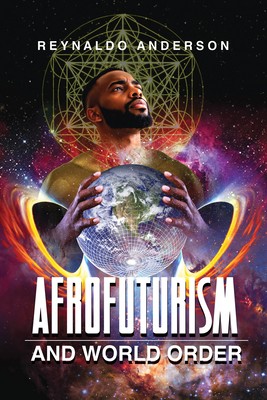
- We will send in 10–14 business days.
- Author: Reynaldo Anderson
- Publisher: Ohio State University Press
- ISBN-10: 0814215947
- ISBN-13: 9780814215944
- Format: 15.2 x 22.9 x 1.6 cm, kieti viršeliai
- Language: English
- SAVE -10% with code: EXTRA
Reviews
Description
In Afrofuturism and World Order, Reynaldo Anderson delves into the evolution of Black speculative thought and Afrofuturism from the early twentieth century to the present day. By locating Afrofuturism within an African geography of reason, he situates the past, present, and future of people of African descent at the intersection of speculative philosophy, science fiction, futurology, artificial intelligence, climate change, and geopolitics. Historically, Afrofuturism theorized futures for Black Americans through merging their lived experiences with science fiction, technology, music, and art. Drawing from adaptations in Black culture and speculative thought during the Cold War, Anderson addresses the shifting focus of the genre from American to transnational, as well as the implications of modern existential threats such as the COVID-19 pandemic. By tracing the Black speculative tradition from its overlaps with Africana esotericism and certain African diaspora regions, to its intersections with astroculture and modernism, to the works of Malcolm X, Amiri Baraka, W. E. B. Du Bois, and Octavia Butler, to the aesthetic politics of the Black Speculative Arts movement, and beyond, Anderson illuminates how Afrofuturism participates in an increasingly multipolar world.
EXTRA 10 % discount with code: EXTRA
The promotion ends in 23d.10:51:39
The discount code is valid when purchasing from 10 €. Discounts do not stack.
- Author: Reynaldo Anderson
- Publisher: Ohio State University Press
- ISBN-10: 0814215947
- ISBN-13: 9780814215944
- Format: 15.2 x 22.9 x 1.6 cm, kieti viršeliai
- Language: English English
In Afrofuturism and World Order, Reynaldo Anderson delves into the evolution of Black speculative thought and Afrofuturism from the early twentieth century to the present day. By locating Afrofuturism within an African geography of reason, he situates the past, present, and future of people of African descent at the intersection of speculative philosophy, science fiction, futurology, artificial intelligence, climate change, and geopolitics. Historically, Afrofuturism theorized futures for Black Americans through merging their lived experiences with science fiction, technology, music, and art. Drawing from adaptations in Black culture and speculative thought during the Cold War, Anderson addresses the shifting focus of the genre from American to transnational, as well as the implications of modern existential threats such as the COVID-19 pandemic. By tracing the Black speculative tradition from its overlaps with Africana esotericism and certain African diaspora regions, to its intersections with astroculture and modernism, to the works of Malcolm X, Amiri Baraka, W. E. B. Du Bois, and Octavia Butler, to the aesthetic politics of the Black Speculative Arts movement, and beyond, Anderson illuminates how Afrofuturism participates in an increasingly multipolar world.


Reviews